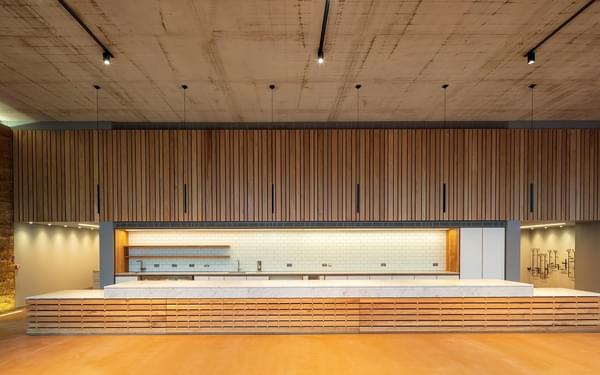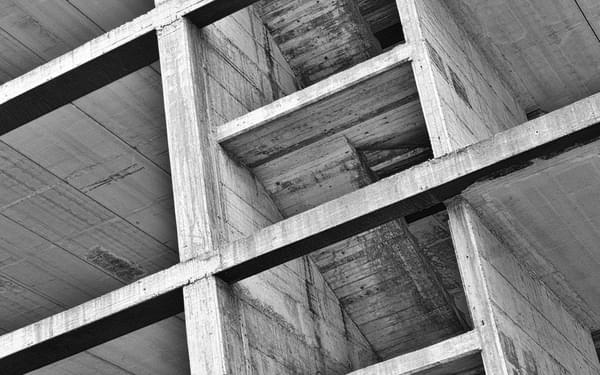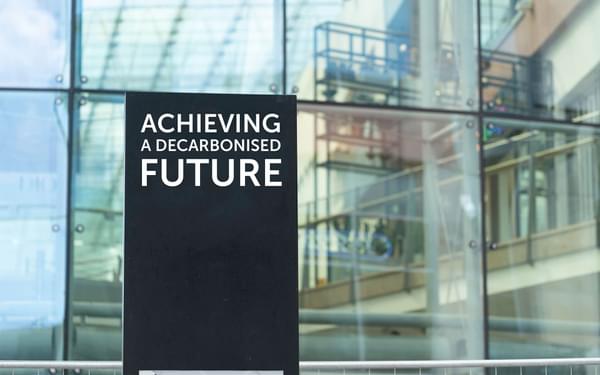Back to Articles
PAS 2080:2023 expands to cover the built environment
Craig Anderson \ 12th Apr 2023
In April 2023, PAS 2080, the internationally recognised standard for managing and reporting on carbon, expands from infrastructure projects to include other built environment categories such as buildings - real estate.
Launched in 2016, and part of a suite of standards from the British Standards Institution (BSI), PAS 2080:2016 has until now focused on managing carbon within infrastructure projects.
It's secured a high profile, notably used by HS2 and National Highways and it is increasingly a requirement or part of a framework for contracts with the NHS, Network Rail and the Environment Agency. However, there is no formal requirement to use it unlike PPN 06/21 which requires a carbon reduction plan in the procurement of major central government contracts.
Recognised for its focus on the whole value chain, it's a standard that encourages reduction in carbon and cost through intelligent design, construction and use.
What does PAS 2080:2023 mean for buildings?
Expanded to cover buildings as well as infrastructure, PAS 2080:2023 will help the whole supply chain work together to drive carbon emissions to zero. It will draw together asset owners, developers, designers, construction firms and product and material suppliers.
PAS 2080:2023 differs from other industry standards such as the Net Zero Standards from the Science Based Targets initiative (SBTi) because it focuses on the management of carbon through the value chain as opposed to specific target setting. As a standard, it sets requirements for members of a value chain to set their own targets and demonstrate how these are being met.
Adopting PAS 2080:2023 will drive the very highest standards in the design and construction of buildings. There will be no hiding place for poor performance when project owners in the real estate sector stipulate that they want the entire design and construction programme to conform to PAS 2080 standards.
PAS 2080 sets out a standard that focuses on leadership, governance, quantification, target setting, measurement and reporting of carbon impacts.
Our advice to organisations in the real estate supply chain is to establish a comprehensive carbon management plan. Carbon needs to be at the forefront of every design and construction decision you make when your process is being verified to PAS 2080 standards.
PAS 2080 is verified by independent auditors. They will want to see a documented plan and process to recognise and respond to carbon impacts. They will also want to see evidence on how and why design decisions are made, and how carbon reductions are quantified and reported.
Is PAS 2080:2023 a game-changer for the real estate sector?
Huge attention is already given to reducing carbon in the construction of buildings as part of our climate adaptation, from off-site manufacture to new and emerging technologies and materials. But it's the industry credibility of PAS 2080 which will make this change have real impact says Hydrock's Josh Bullard, who leads the company's Smart Energy & Sustainability team:
“It will change behaviours and thinking, and that's what makes it a game-changer. It will place focus on the impact of the supply chain in construction and encourage project design and construction teams to think about the carbon involved in all the decisions they make. Applying this to property development projects will also help the industry to learn from each other.”
PAS 2080 is recognised as a thorough and transparent method for reducing carbon, and recording and verifying these facts. For projects in the property sector, it's adoption will add even more weight to what is regarded as best practice from established benchmarks such as BREEAM and emerging standards such as NABERS UK.
It will also naturally support all other relevant reporting mechanisms such as the Task Force on Climate-related Financial Disclosures (TCFD).
It's expansion to buildings will encourage design and construction teams to think about all relevant options to make the best decisions in terms of minimising carbon impacts, from choice of material, to process, to nature-based solutions, to the use of renewable technologies. To secure the accreditation and be a visibly responsible member of a project team, it will drive more robust design decisions and better documented processes.














